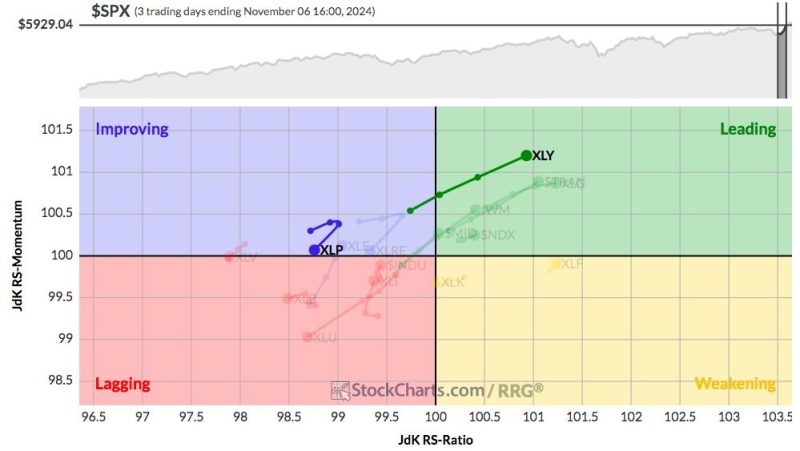Secular Bull Market Continues With Major Rotation
The ongoing secular bull market has showcased its resilience despite facing various challenges and uncertainties in recent times. Investors have witnessed a major rotation in the market dynamics, contributing to fluctuations in the performance of different sectors and asset classes. Understanding the key factors driving this transformation is crucial for navigating the current investment landscape effectively.
One prominent trend in the market is the significant rotation from growth stocks to value stocks. This shift reflects investors’ changing sentiment towards companies with solid fundamentals and attractive valuations, as opposed to those primarily driven by future growth potential. The prolonged period of low interest rates and stimulus measures has magnified this trend, as investors seek opportunities in undervalued sectors that stand to benefit from the broader economic recovery.
Furthermore, the rise of disruptive technologies and changing consumer behaviors have propelled certain sectors to the forefront of the market. Industries such as renewable energy, electric vehicles, and healthcare innovation have garnered significant attention and investment inflows, driven by increasing demand for sustainable solutions and cutting-edge advancements. Companies at the forefront of these trends have experienced substantial growth, reshaping traditional market dynamics and investor preferences.
The global economic landscape has also played a crucial role in shaping the market environment. The recovery from the pandemic-induced slowdown has been uneven across regions, with disparities in vaccination rates, government stimulus measures, and policy responses impacting economic growth trajectories. These divergences have led to sector-specific opportunities and challenges, as investors assess the implications of a shifting global landscape on their investment portfolios.
In addition, inflation concerns have emerged as a key driver of market sentiment in recent months. Rising prices across various sectors, coupled with supply chain disruptions and labor shortages, have reignited fears of sustained inflationary pressures. Investors are closely monitoring central bank policies and government responses to gauge the potential impact of inflation on financial markets and asset valuations.
Amidst these various factors shaping the market dynamics, it is essential for investors to maintain a diversified portfolio and stay attuned to changing trends and emerging opportunities. Adapting to evolving market conditions, conducting thorough research, and seeking guidance from financial professionals can help investors navigate the complexities of the secular bull market and capitalize on shifting trends.
In conclusion, the secular bull market continues to display resilience and adaptability amidst changing economic conditions and investor preferences. The ongoing rotation in market dynamics, driven by shifting trends and emerging opportunities, underscores the importance of staying informed, agile, and diversified in navigating the current investment landscape effectively. By remaining vigilant and proactive in their investment approach, investors can position themselves for long-term success in the evolving market environment.
